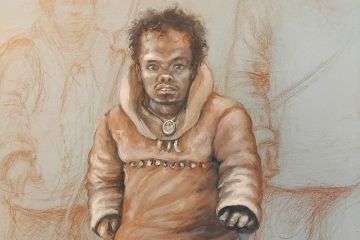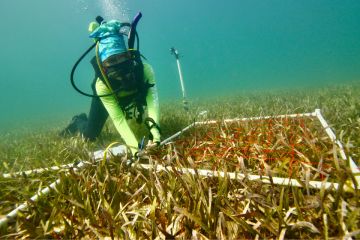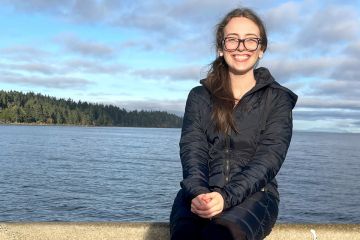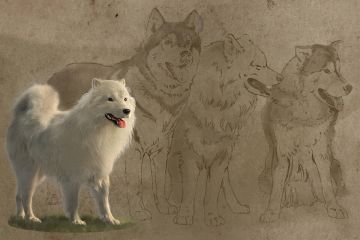Cowichan Valley ancestral site connects youth to their roots
- Anne MacLaurin
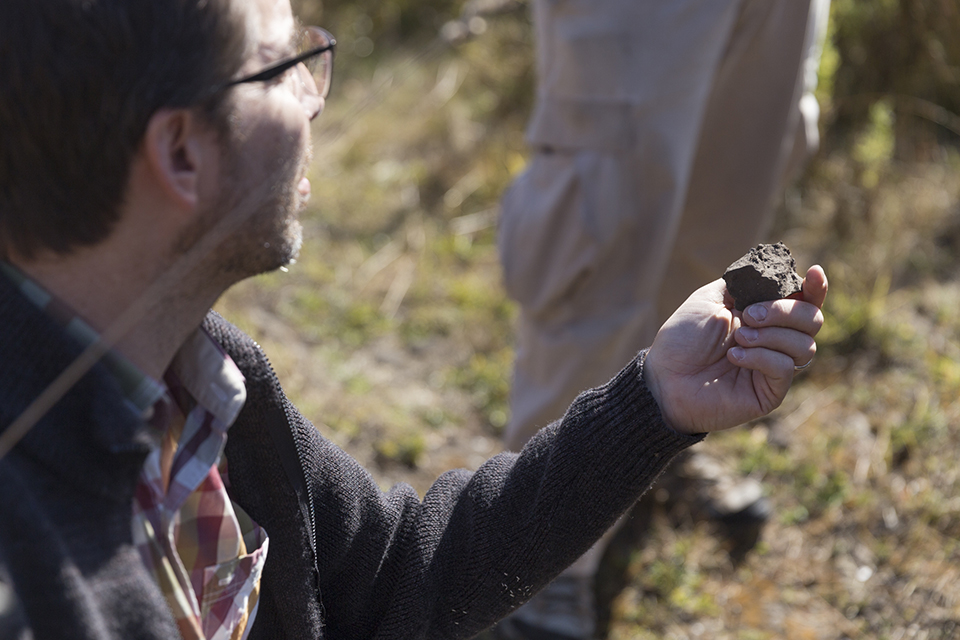
With the introduction of BC’s new curriculum, there is a significant need for Indigenous-related curricula in public schools, providing key knowledge for non-Indigenous students in Canada and connecting Indigenous youth to their roots. UVic anthropologist Brian Thom has been working closely with Cowichan Tribes and School District 79 to develop an innovative, place-based curriculum at an ancient ancestral site in the Cowichan Valley within walking distance of three local schools.
Ye’yumnuts is a 2,000 year-old settlement of Cowichan Tribes. Thom was part of the archaeological investigations at the site in 1994 when he was still a UBC graduate student and, during his years at the treaty table, helped argue for its protection. Once threatened by urban development, and after a 20-year struggle led by Cowichan Tribes, Ye’yumnuts is now permanently protected.
As part of the Commemorating Ye’yumnuts project initiated by Cowichan Tribes in 2017, Thom and UVic anthropology graduate students were invited to partner with Elders, school district staff and others to commemorate the site and develop interpretive materials and school curriculum resources. This spring, the project launched its new website, which was researched and created by Thom and students enrolled in ANTH 585/685 in the Faculty of Social Sciences.
The project—which continues in Thom’s grad seminar this fall—has brought placed-based learning directly into local classrooms; sharing Indigenous values and teachings about the land, oral histories, archaeological evidence, and important histories of colonial land alienation and development controversies. In the hands of teachers and students in the local school district, Thom and his partners are fueling part of the transformative learning enabled by BC’s new curriculum.
These projects are all about inspiring Cowichan youth, and building deeper understanding and respect for Indigenous values, teachings and histories about the lands we share.
—UVic anthropologist Brian Thom
Internationally recognized for his Google ethnographic mapping expertise, Thom is also known for research that is deeply engaged in community-driven efforts by Indigenous people to resolve title and rights claims and to support self-determination. This new project includes an extensive website of curriculum resources—from videos and podcasts to interactive and timelines maps. Visitors to the ancient site can see signage designed by Thom and his students, with plans for more on-site interpretive materials in the year to come.
Learning about local ancient places
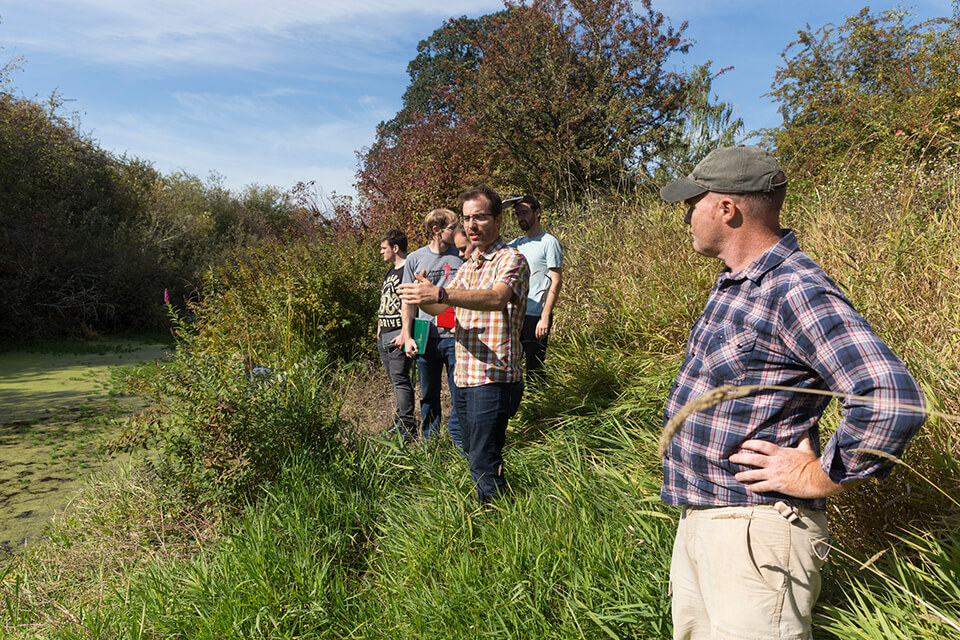
Realizing that his own children attending public schools in Duncan were doing projects on Greek and Roman archaeology rather than learning about local ancient places, Thom and fellow parent Dianne Hinkley from Cowichan Tribes brought several classes to Ye’yumnuts and shared some of the exciting archaeological and oral history work that has gone on there.
Inspired by the intensely positive student experience at the site, Cowichan Tribes invited Thom to further their collaboration.
My hope for the future is to continue working with UVic and Brian on this and other projects to give university students some practical experience, and to educate the public and our school children about the richness and antiquity of our First Nations in BC and the rest of Canada.
—UVic alumna (anthropology) and Cowichan Tribes Lands Research Manager Dianne Hinkley
Integral partnerships respecting Coast Salish teachings
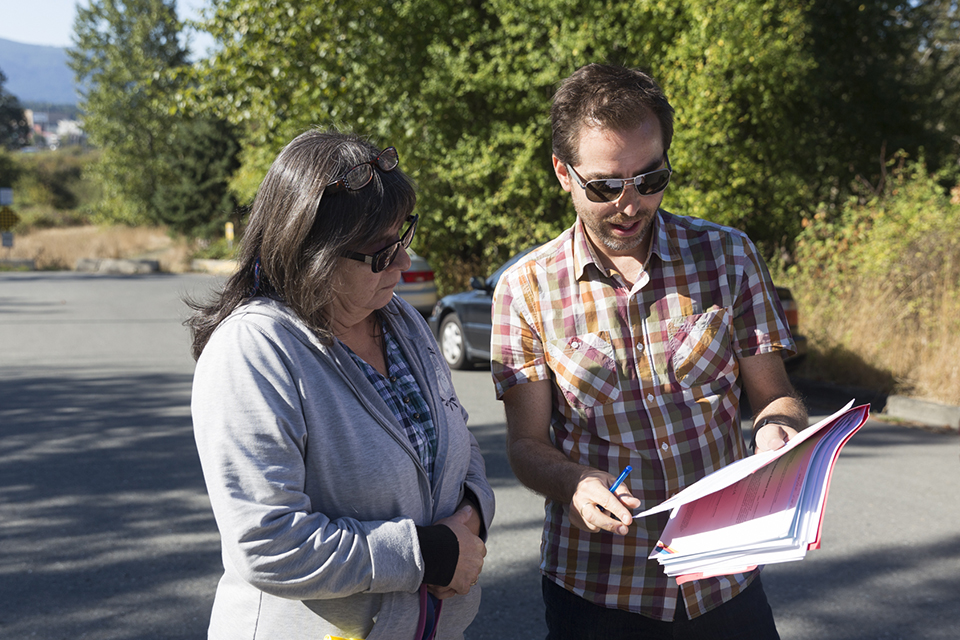
The collaboration with UVic, Cowichan Tribes, the school district and others commemorated Ye’yumnuts as an interpretative, educational centre while respecting Coast Salish teachings around ancestral and sacred sites.
“Partnering with Brian and UVic is integral to this project because of their in-kind contributions of time and people,” adds Hinkley, who graduated from UVic in 1993 with a BA in anthropology. “I also value the long-term partnership and interest in this site with Thom and [UVic anthropology doctoral candidate] Eric McLay.”
A recent story by the Canadian Press—picked up widely across the country this weekend including by the Toronto Star, National Post, Vancouver Sun, Times Colonist and numerous other media outlets—includes comment from Rosanna Jackson, the school district’s Indigenous curriculum co-ordinator.
Jackson told the Canadian Press that the project is building partnerships between Indigenous and non-Indigenous communities: “Something like this is the natural balance where the Cowichan people are helping the teachers understand what does it look like to come in. What does it look like to be a partner since we all live here, work here, breath here, play here.”
Funding for this project was provided to Cowichan Tribes as a BC/Canada 150 grant from the BC Ministry of Community, Sport and Cultural Development through the BC Museums Association.
Photos
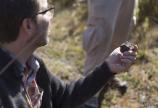
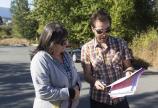
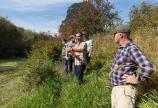
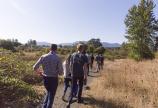
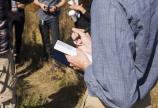
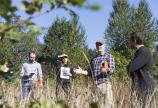
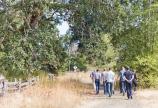
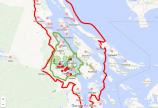
In this story
Keywords: anthropology, community, Indigenous, student life, mapping, education, youth, funding
People: Brian Thom
Publication: The Ring

